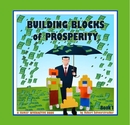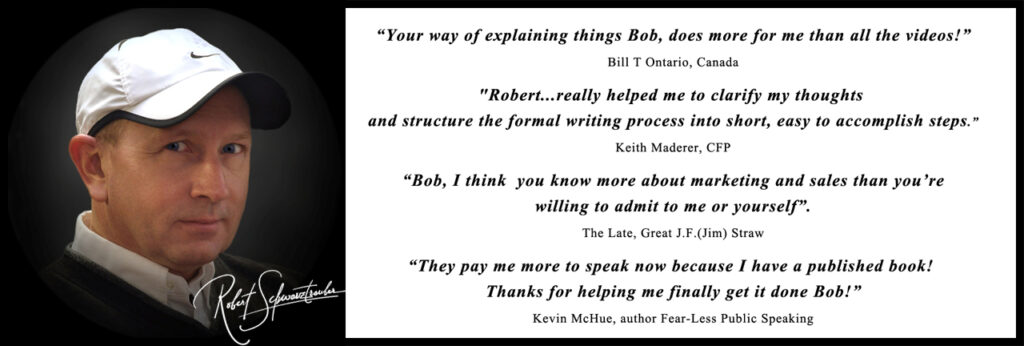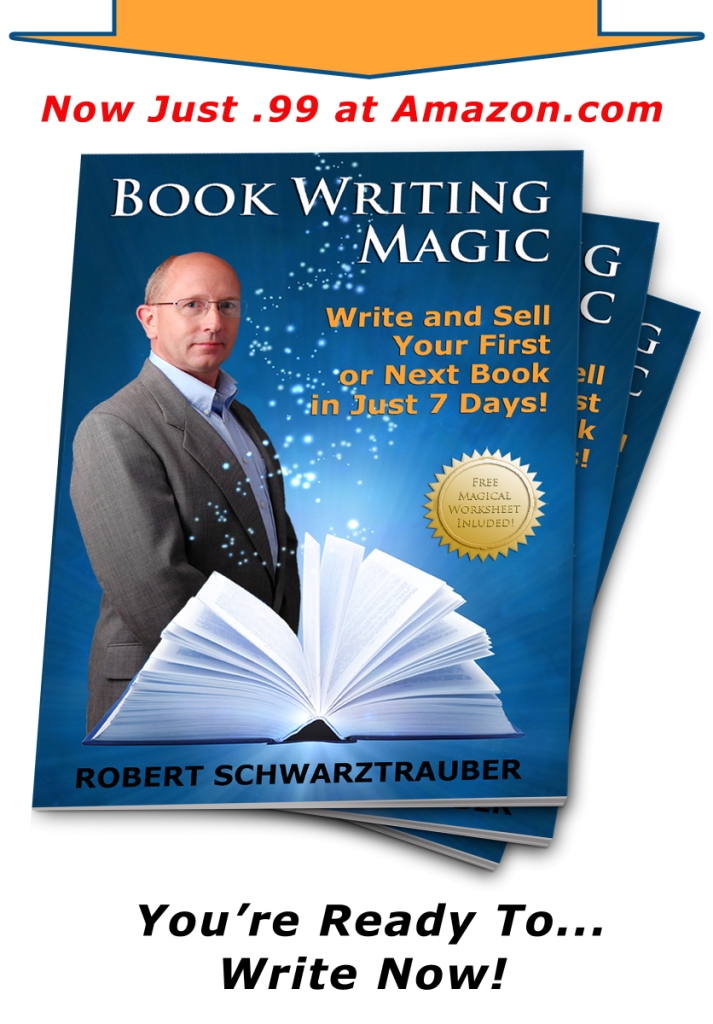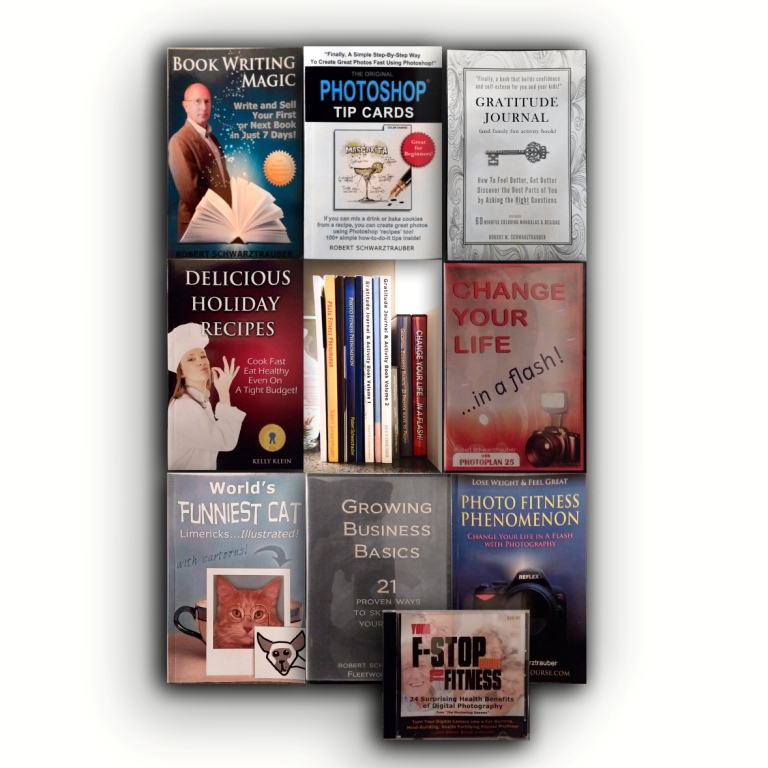Today , since many have asked this question, some out loud, others in their head, I thought I would treat you to some words of wisdom from one of the top earning writers out there today, Bob Bly. Not only is he the author of numerous successful books, but he’s also one of the top copywriters out there, and a very successful online marketer in his own right. I can’t think of anyone who knows both online and offline marketing better than he does. Enjoy and learn. Bob S.
This article appears courtesy of Bob Bly’s Direct Response Letter…
Does the Printed Word Matter in the Internet Age?
By Robert W. Bly
Those of us who make our living with words are naturally disheartened when we hear the various “war cries” of hardcore online users and marketers: “Nobody reads anymore” … “Print is dead” … “Copy doesn’t matter” … “Books will disappear.”
The success of James Mustich, Jr. and his eclectic book catalog, A Common Reader — launched in 1986 — is a refreshing exception to these claims.
A Common Reader is a mail order seller of, as their slogan proclaims, “Books for readers with imagination.” They sell mainly through catalog, though there is also a Web site (www.commonreader.com), which now accounts for 15 percent of orders.
Mustich mails catalogs 15 to 17 times a year. The exact same catalog never mails twice; each edition is new — although many of the same books are offered from issue to issue.
Several features make A Common Reader unique. First and foremost are a love for, and almost reverence of, the printed word and books — clearly communicated in every issue.
“Books are the coin of our private realm, and if their power seems ever-diminished in the world at large, nonetheless their value continues to enrich those devoted to them with a reserve of learning, wisdom, and wonder — both personal and communal — on which the souls of readers rely,” writes Mustich in his introduction to the 226th issue of A Common Reader. “The books we’ve read comprise a story of intuition and experience that nourishes our hearts and minds, while the books we will read remaining beckoning on the hill, filled with all the promise, danger, and delights any destiny can house.”
The second characteristic that sets A Common Reader apart from other book catalogs, such as Barnes & Noble or Edward Hamilton, are the long, literate descriptions of the products.
Each issue of The Common Reader is 128 pages long and features 600 to 700 books. Book descriptions average 300 words and can run 1,000 words or more if the copywriter feels it’s needed.
Copy is written in-house by Mustich and staffers Tom Meagher, Charles Newman, and Chris Kearin.
I asked James — who got his start as a copywriter with book catalog Cahill & Company, and also did direct mail for an educational publisher — to explain his creative approach to writing copy to sell books.
“Sometimes I read the whole book, but often I don’t have to,” he explained. “I just have to read enough to get a sense of its character, describe it well, and discover what in it will repay the reader’s time.”
Catalogs are mailed primarily to a house file with 180,000 names. About 120,000 customers are frequent buyers; another 60,000 are not as active. Many of these names have been regular customers for a decade or longer.
What makes the catalog work?
“We are not just copywriters writing blurbs,” says Mustich. “We write on a level of intelligent discourse about books aimed at literary people.” He describes the books he sells as “eclectic — quintessential backlist or midlist books that have not gotten a lot of PR” — although they do sell bestsellers if they feel the books have literary merit. “We are driven not by market trends, but by what we like,” he notes.
And ironically, this catalog that worships print takes a tip from online marketing — by creating a “community of interest” for a particular audience: book lovers.
“There is a gulf today between the publisher and the reader,” observes Mustich. “The publisher is often not thinking of the reader; he’s thinking of his sales reps, wholesalers, buyers at the big bookstore chains. Marketing books this way is divorced from readers. A Common Reader bridges the gap directly from book to reader, without being part of the distribution chain.”
That’s why, Mustich explains, loyal customers eagerly anticipate getting their next issue of A Common Reader in the mail.
“We are readers speaking to other readers,” says Mustich. “We’re not critics, reviewers, or scholars. Customers have the sense that the books we recommend are parts of our lives. A Common Reader engages them in conversations about good books — conversations they would like to have but otherwise don’t have time for or access to.”
Proof that Mustich’s instincts about catalog customers viewing A Common Reader as a “community of interest” for serious readers is the large volume of correspondence Mustich gets in which readers comment about the books.
“Clearly a lot of people are reading good books and want to engage in conversation about them,” he says. “If booksellers and publishers were more inventive in approaching readers, they would be pleasantly surprised about how vibrant book culture in this country could be.”
And does it pay off? Mustich wouldn’t give precise sales figures. But he does say that A Common Reader grosses over $5 million annually, has a “single-digit” profit margin, and that he makes “a comfortable living” from it.
But money is not his primary motivation. “I started A Common Reader because books are my passion,” says Mustich. “I wanted to stay around books, be in the book business, and to write. The catalog allows me to make a good living combining all of these passions.”
I asked James if his devotion to printed books in the Internet age makes him a sort of dinosaur.
“We do live in a non-book age,” Mustich concedes. “TV, the Internet, and other media now play a much greater role than books in determining the conversation of our culture, so much so that they threaten to overpower and drown out the more contemplative modes of experience, including book reading.
“The slowness of book reading, its gradual nature, is beneficial. Books provide a kind of corner in life where you can go and sit and collect your thoughts. You can grow and put ideas together in new ways that you can’t when you are only looking for what you know is already there, as with search engines on the Internet.”
And will future generations want such opportunities? “Book culture will play less of a role in the conversation,” admits Mustich. “But it will not disappear.”
About the author:
Robert W. Bly is a freelance copywriter and the author of more than 50 books including The Complete Idiot’s Guide to Direct Marketing (Alpha)
His e-mail address is rwbly@bly.com and his Web site address is http://www.bly.com.





